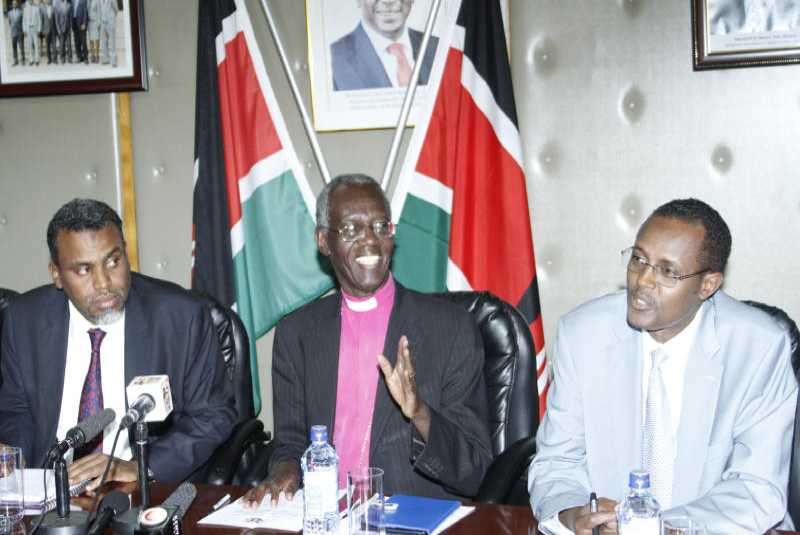×
The Standard e-Paper
Home To Bold Columnists

Director of Public Prosecution (DPP) Noordin Haji (left) flanked by The Ethics and Anti-Corruption Commission of Kenya EACC Chairman Eliud Wabukhala (centre) and Chief Executive Officer Halakhe Waqo address a press conference. EACC released a study on corruption index in the counties and state departments at KICC on Monday. [File, Willis Awandu/Standard]
A report by the Ethics and Anti-Corruption Commission reveals chiefs and village elders are high up in the corruption rankings.